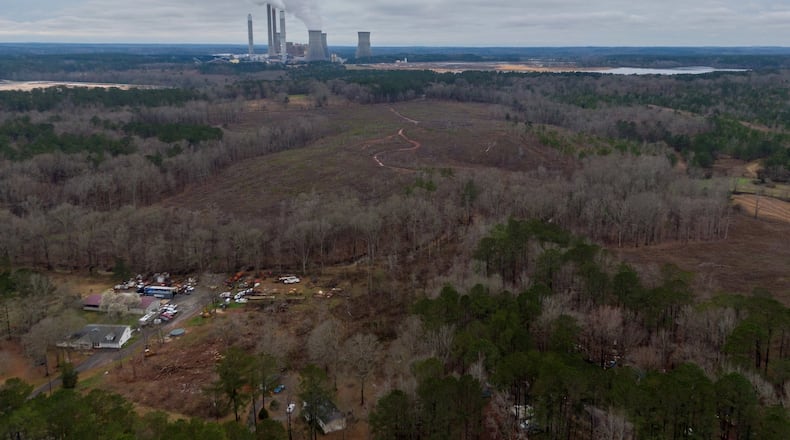The Georgia House on Thursday passed three bills related to management of coal ash, the toxic waste material left behind from the burning of coal.
Coal ash has become a major environmental topic in the legislature this year, given the pending closure of coal ash ponds across the state at 11 Georgia Power plants.
HB 93 sponsored by Rep. Rick Williams, R - Milledgeville, which would require written notice to communities when coal ash ponds are being drained, passed unanimously with a vote of 165-0.
HB 929, which would require longterm monitoring of groundwater around ash ponds with results of the monitoring made available to the public in clear language, passed 113-52.
The bill, sponsored by Rep. Vance Smith, R-Pine Mountain, prompted a lively discussion kicked off by minority leader, Rep. Bob Trammell, D - Luthersville, who sponsored another coal ash bill, HB756, that never made it to a hearing.
That bill, supported by a contingent of residents in Juliette who live near Georgia Power’s Plant Scherer, would require coal ash be disposed under guidelines at least as stringent as those for standard household trash. Georgia law currently requires household trash to be disposed of in solid waste landfills with bottom liners and collection systems that help make sure garbage and liquid waste do not seep into groundwater.
“When we know that people need help, our job is to help and it’s not to leave Georgians as human canaries in a coal mine,” Trammell said after reading letters from two residents of Juliette who expressed ongoing concerns about the impact of coal ash on the water in their private wells.
“Every time I look at my water faucet it is like I am starting at the face of a venomous snake,” said Trammell reading the comments of one resident.
Rep. Lynn Smith, R-Newnan noted that the state Environmental Protection Division has the authority to "stop all operations and require the offenders to re-mediate the land."
"Monitoring pollution after the pollution has already happened does not protect people from being exposed to the pollution," said Rep. Jasmine Clark, D- Lilburn.
The final bill, HB959 would discourage out-of-state coal ash from entering Georgia by raising the fee on coal ash being dumped in landfills. Sponsored by Rep. Steven Meeks, R-Screven, the bill passed 162-1.
“We know coal ash ponds around our state are leaching coal ash toxins so it is good to see the Georgia House pass three bills addressing the coal ash problem on Crossover Day,” said Jennette Gayer, Director of Environment Georgia and a chair of the Georgia Water Coalition’s (GWC) Coal Ash Committee in a statement. “Now the challenge will be making sure these bills become law and comprehensively address our coal ash problem.”
In addition to the House bills, SB 384 sponsored by William Ligon, a Republican from Brunswick, passed the Senate with a vote of 40-11. The bill would restrict the state from issuing permits to any municipal solid waste disposal facility or coal ash landfill within a certain distance of a blackwater river that is wholly in the state and that originates in Georgia's coastal plain.
AJC staff writers Amanda Coyne and Maya T. Prabhu contributed to this story.
About the Author
Keep Reading
The Latest
Featured



